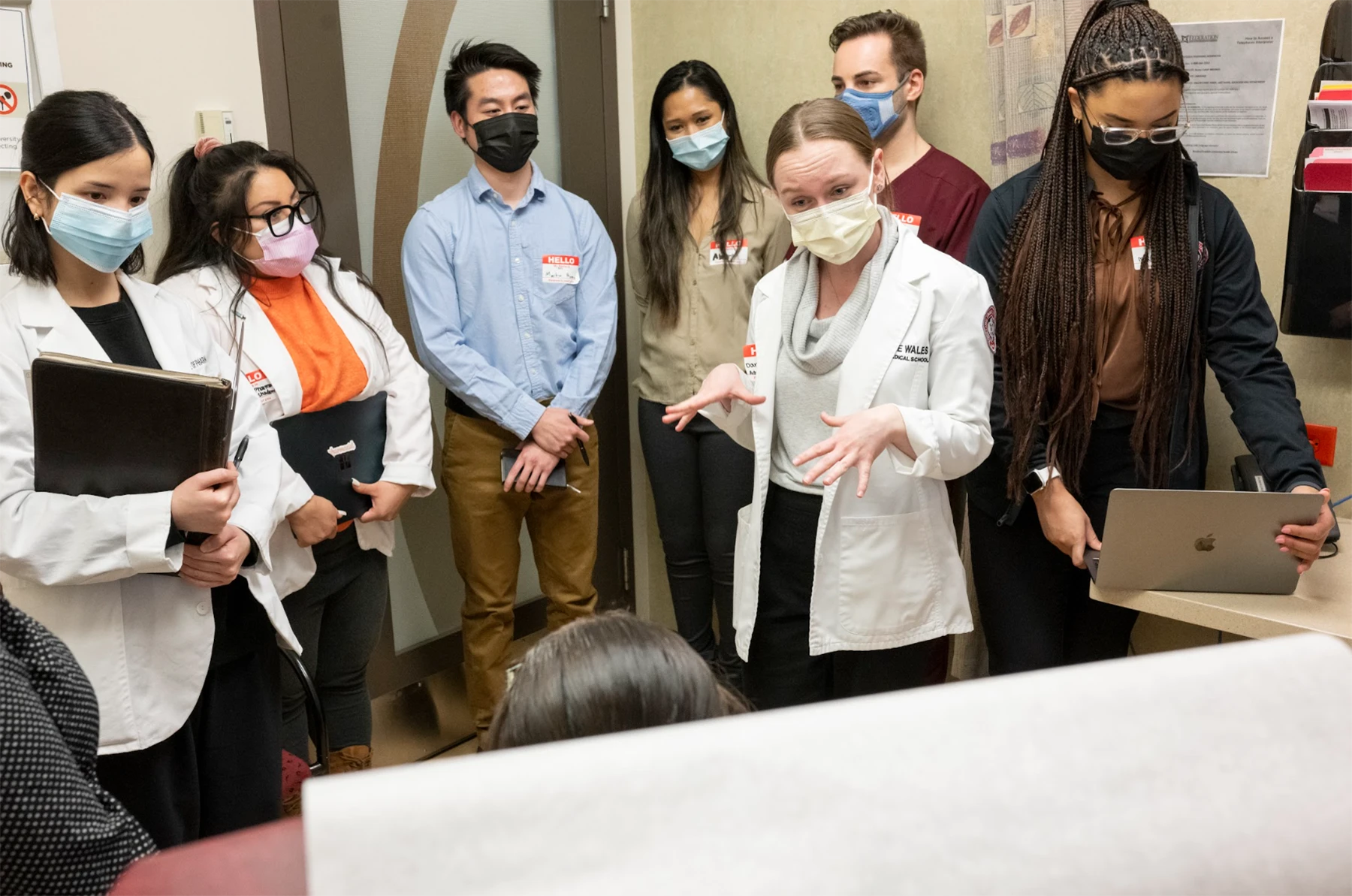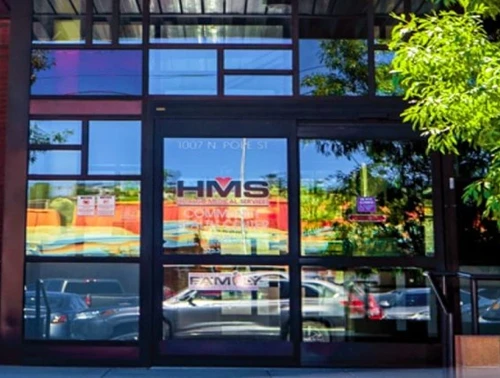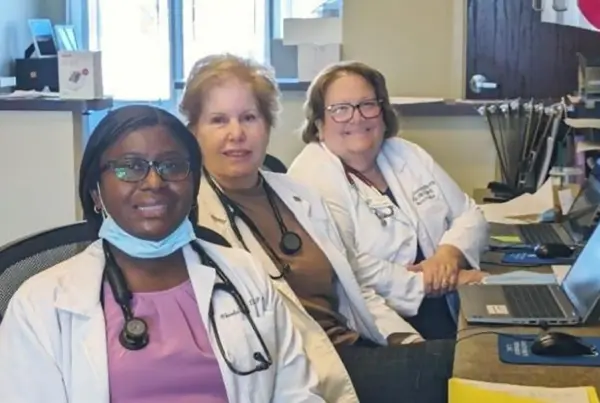In the suburbs an hour north of Chicago, the Interprofessional Community Clinic (ICC) at Rosalind Franklin University of Medicine and Science is a student-led free clinic that offers a range of medical services including primary care medicine, gynecology, physical therapy, podiatry, dermatology, ophthalmology, and behavioral health to hundreds of uninsured patients every year, many of whom prefer speaking Spanish.
Thanks to the generosity of the Illinois Association of Free and Charitable Clinics and VNA Foundation, ICC’s volunteer clinicians can tap into the knowledge of MAVEN Project’s seasoned specialty volunteers to assist them in providing the highest quality health care.
This unique clinic is led by Rosalind Franklin University students from a variety of disciplines. Supported by volunteer clinicians, students run all aspects of clinic management, including patient care and education, patient outreach, marketing, and fundraising. Student providers lead appointments with patients, after which they present an assessment and treatment plan to a team of seasoned clinicians. Meanwhile, the patient is looked after by ICC care coordinators, who make connections to valuable resources.
“Our model is great for students, who learn by doing under clinical supervision,” shared Medical Director Melissa Chen, MD. “And it’s great for patients because it breaks down silos between specialties with our unique interprofessional collaborations. Adding MAVEN Project as a partner has been incredible. Consulting specialists share important perspectives that our clinicians wouldn’t be able to access otherwise, and elevate our ability to deliver an excellent standard of care. That guidance is a great source of confidence for our students, faculty, and patients.”
Assistant Medical Director Misty Fils, MS, PA-C, noted that the clinic has expanded to support local unhoused populations.
“For most of our patients, the ICC is the last resort to receive the intervention they need,” Fils said. “We try to help them access specialists when they need it, but language, transportation, and cost barriers make that challenging. Individualized patient consults mean we can keep care at the ICC in many cases. Plus, the access to highly trained specialists helps us recruit overseeing clinicians who might otherwise feel the practice is too far out of their scope to join the ICC.”
The professionals at the ICC have also enthusiastically participated in MAVEN Project’s education sessions—including one on infectious diseases in an immigrant population and another on pelvic health for the transgender male.
“We are tremendously grateful for what MAVEN Project has provided,” Fils added.






